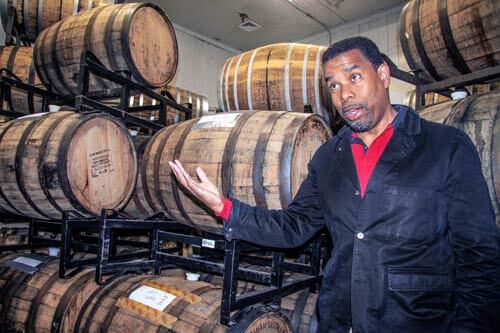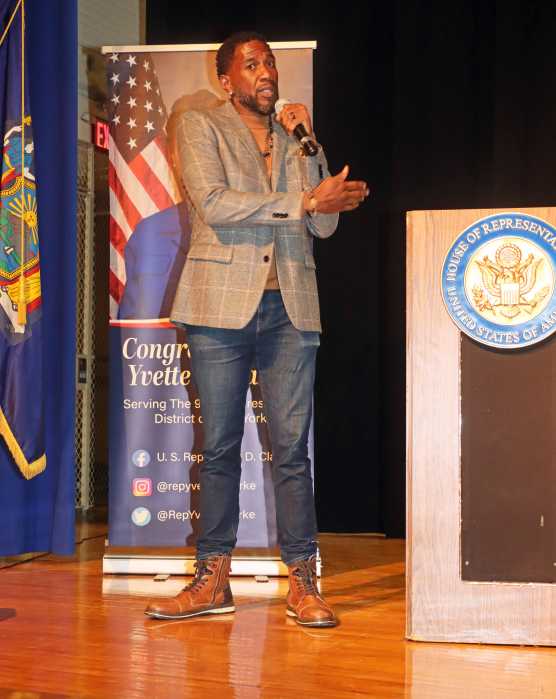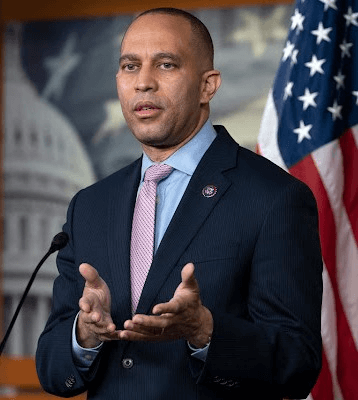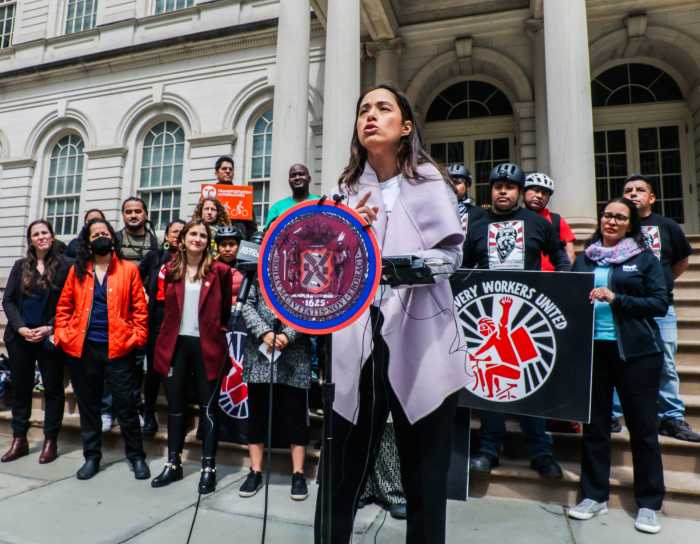With a twinkle in his eye, Garrett Oliver, brewmaster of Brooklyn Brewery, whimsically describes how people frequently have a fixed idea of what a brewmaster looks like: he should be of European descent, short, stout, balding, wire-rim glasses, and wearing a lab coat.
“Who says a brewmaster should be that?” He asks. Garret is tall, fit, sports a trimmed beard with a hint of silver, and has a mocha-hue complexion. He lives and fits none of the preconceived notions of what is a brewmaster. Since 1994, Garrett has been that person at the Brooklyn Brewery.
Co-founder/president Steve Hindy says of his chief of the brew, “Garrett’s become, without exaggeration, one of the world’s top authorities on beer.”
Oliver is a real New Yorker, hailing from Hollis, Queens; his grandfather is from Barbados.
He became acquainted with good tasting beer and old-fashioned ale production during a stint of time he spent in England after college in Boston (he studied film). The seeds were planted for a later journey that would bring him a stellar career and international recognition.
Back in the States, he brewed beer at home and became a founding member of the New York Home Brewers Guild in 1987. He then apprenticed and later became brewmaster at the Manhattan Brewing Company, a micropub–now defunct– in Soho, before crossing the East River and joining the Brooklyn Brewery team.
“He helped to design the original (Brooklyn) brewery in 1996 and the new one that opened in 2012,” Hindy recounts. Garrett, sometimes referring to himself as a brewery chef, is responsible for everything that has to do with the beer¬–equipment, procedures, recipes, production method, and flavor.
Garret carries you along in appreciating the complexities of beers, once you move away from standard brews. (At that first job, he even started an M.B.A. in beer; that is to say, Masters in Beer Appreciation durin which 73 percent of the students were women.)
Among the beers he has helped develop at Brooklyn Brewery are a Bavarian style wheat beer known as Brooklyner Weisse, a rich dark Brooklyn Black Chocolate Stout, Brooklyn East India Pale Ale (IPA), Brooklyn Pennant Ale ’55 and a long list of seasonal, special beers and new limited draft-only beers, released every four months.
Garrett can walk you through the history of beer. “The first breweries that made money came out of Africa,” he educates, providing background information.
“Brewing is still the center of every true village community in Africa today… the same as the way people did it thousands of years ago. I’ve been in townships in South Africa, passing around that same big communal jar that the whole village is drinking out of.”
About more contemporary tastes, he explains, “Our beer culture comes out of various parts of Europe. For the Caribbean, you have Guinness and the whole stout tradition.
Stout comes out of London that becomes Irish, and then was driven by the Irish into the Caribbean. The Extra Stout mimics the sour flavor of the slight spoilage from the long sea voyage to the Caribbean.”
As for lagers, he explains that they come after the 1700s with a cold fermentation process.
Why haven’t draft beers trended in the Caribbean, one might ask?
“In the days before good sanitation, the bottle was more reliable. It was sealed, it couldn’t be watered down,” Garrett suggests, adding that also consistent electricity is needed to keep kegs cool. With bottles, you can just put them on ice. Generally speaking now, tourist resorts in the Caribbean have beer on tap.
Talking about the Oxford Companion to Beer published in 2011, by Oxford University Press, Steve Hindy reports, “it’s the first time in history there’s been an encyclopedia of beer for the general public.” Our home-turf authority Garrett Oliver is its editor-in-chief who compiled the tome with 166 experts from 26 countries contributing.
Garrett’s other still in-print book The Brewmasters Table (2005) shares 300 of his favorite beers, culinary tips and food and brew matchups.
In 2007, Forbes named him one of the top ten tastemakers in the country for wine, beer and spirits.
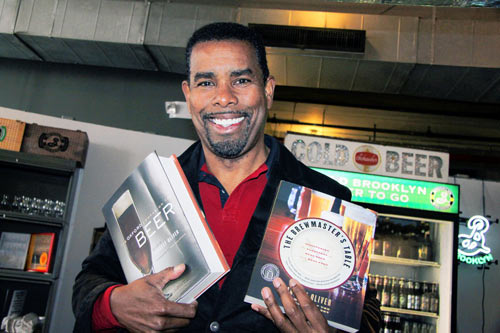
Photo by Tequila Minsky


